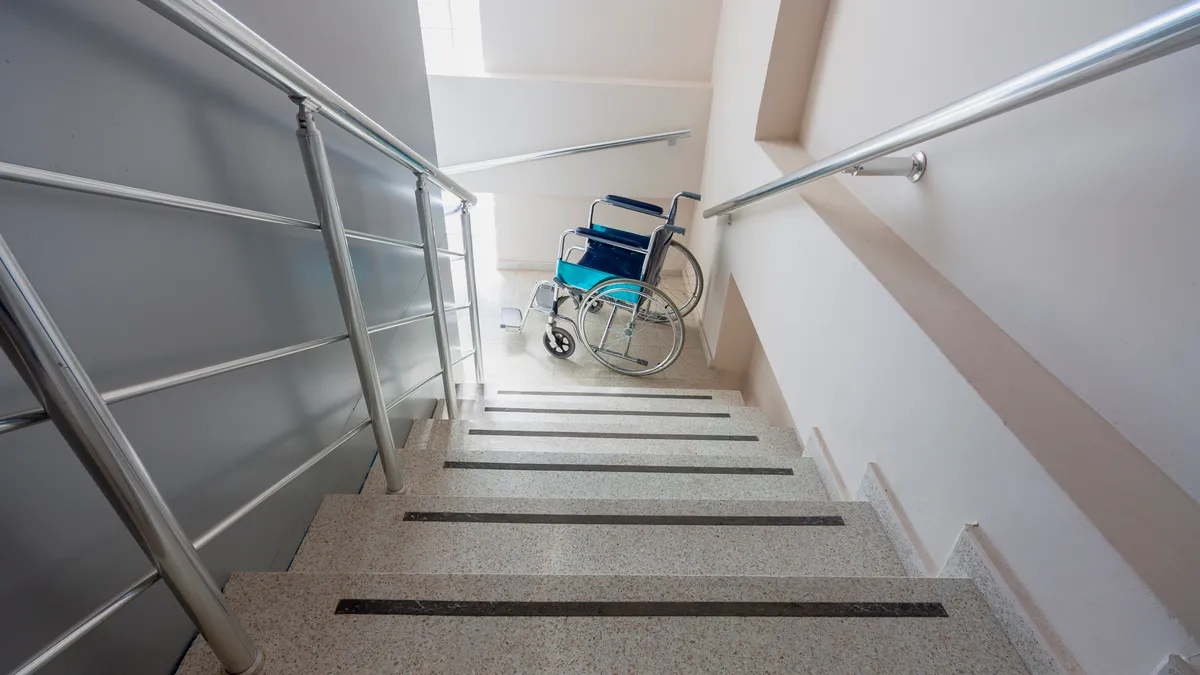A lawsuit filed in September by 17 states against the U.S. Department of Health and Human Services challenges an agency rule that included gender dysphoria in the definition of a disability under Section 504 of the Rehabilitation Act — and seeks to declare Section 504 itself unconstitutional.
HHS finalized the rule in May under the Biden administration, requiring child care, preschool, elementary, secondary, postsecondary, and career and technical education programs to provide Section 504 services to students with gender dysphoria, which is the distress felt when one's gender expression doesn't match their gender identity.
Section 504 of the Rehabilitation Act of 1973 prohibits discrimination on the basis of disability in K-12 schools and colleges that receive federal funds. Section 504 accommodations for students with disabilities can include academic, mental and physical supports.
Filed in U.S. District Court Northern District of Texas, the states' lawsuit alleges that adding gender dysphoria to Section 504’s definition of a disability is federal overreach.
"Section 504 applies to all federal funds with no limit, so the Final Rule forces States to choose between a ruinous withdrawal of federal funding and compliance with the new protections. This is an impossible choice, and the Final Rule is unconstitutionally coercive for forcing it on the States," according to the lawsuit, Texas v. Becerra.
The states said in their lawsuit that the Americans with Disabilities Act, which has the same definition of disability as Section 504, “expressly excludes from that definition ‘transvestism, transsexualism, pedophilia, exhibitionism, voyeurism, [and] gender identity disorders not resulting from physical impairments or other sexual behavior disorders."
The lawsuit has raised concerns from disability advocates that Section 504 protections, such as accommodations for students with disabilities in schools, would no longer be available.
If Section 504 were declared unconstitutional or if its rules were severely weakened, it would be "a disaster for people with disabilities," the Disability Rights Education and Defense Fund said in a Feb. 14 update post on its website.
“I hear you, parents. Utah parents shouldn’t have to worry if their children are receiving the services they need.” — Attorney General Derek Brown pic.twitter.com/kdtY0vn0G4
— Utah Attorney General (@UtahAG) February 14, 2025
One of the states suing HHS — South Carolina — issued a statement on Feb. 13 assuring that the lawsuit would not impact students' Section 504 accommodations.
"The Attorney General’s Office joined the lawsuit with the sole intention of removing 'gender identity disorders' and restoring Section 504 to what Congress passed originally," the statement said. "There was no intention to throw out Section 504 entirely."
The attorneys general in Arkansas and Utah have also posted statements to social media saying they would protect Section 504 accommodations for children.
The other plaintiff states are: Alaska, Alabama, Florida, Georgia, Indiana, Iowa, Kansas, Louisiana, Missouri, Montana, Nebraska, South Dakota, Texas and West Virginia.
Editor’s note: For more on Section 504 and what it means for schools, check out the latest installment of our Study Hall series.






 Dive Awards
Dive Awards






